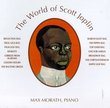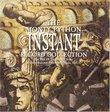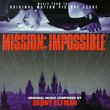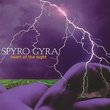| All Artists: Karol Szymanowski, Karol Stryja, Katowice Polish State Philharmonic Orchestra & Chorus, Polish State Philharmonic Orchestra (Katowice) Title: Karol Szymanowski: Symphonies Nos. 1 & 2 Members Wishing: 0 Total Copies: 0 Label: Naxos Release Date: 3/18/1997 Genre: Classical Styles: Historical Periods, Modern, 20th, & 21st Century, Symphonies Number of Discs: 1 SwapaCD Credits: 1 UPC: 730099468329 |
Search - Karol Szymanowski, Karol Stryja, Katowice Polish State Philharmonic Orchestra & Chorus :: Karol Szymanowski: Symphonies Nos. 1 & 2
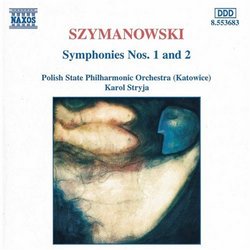 | Karol Szymanowski, Karol Stryja, Katowice Polish State Philharmonic Orchestra & Chorus Karol Szymanowski: Symphonies Nos. 1 & 2 Genre: Classical
|
Larger Image |
CD DetailsSimilar CDs
Similarly Requested CDs
|
CD ReviewsAcademic Interest???? Steve Sturgill | Dallas,TX USA | 04/11/2007 (5 out of 5 stars) "Karol Szymanowski is one of the greatest modern era composers who lived during the Impressionist phase of artistic evolution. He was highly influenced by Chopin and Debussy amongst many others. These are both lovely and tonally interesting and deeply moving pieces. Please do not heed the other reviewers' opinion. By the way what scores have THEY created that are worthy of EVEN only academic interest? Do tell! Buy this album and you will love the music!" Szymanowski betrayed by his musical influences Larry VanDeSande | Mason, Michigan United States | 06/29/2009 (3 out of 5 stars) "The other reviews here have this collection scored properly but not, I believe, for the right reasons. Karol Szymanowski (1882-1937) was born Ukranian but aspired to become a national composer in Poland, his adopted homeland. His early adulthood, which produced this pair of symphonies, was spent in Berlin, Vienna and Leipzig, where the Symphony 2 met success becuase of its originality. Trouble is, Szymanowski took many years to find his unique voice, the one that produced "King Roger" and the Violin Concertos, and that voice had not yet become apparent in these symphonies.
The shadow of Richard Strauss weighs heavily on the Symphony No. 1, produced in 1907 when Szymanowski was 25. The two-movement music is heavily indebted to ideas from Heldenleben and Zarathustra though it ends in a Tchaikovskyan flourish. The Symphony No. 2, written 1910, begins as if another paean to Strauss until it turns Brahmsian at about 7 minutes of the first movement's Grazioso. The second movement, a Lento, shows the variable influence Scriabin had on the composer, as feelings of ecstasy sweep until an almost Chopinesque ballet takes place. The closing Fuga is right out of Reger with a solid cadence that turns quiet, momentarily, until anotherm marital fugue closes with a grand statement. I found this music interesting and entertaining, better than Strauss's "Aus Italian" and as good as anything I've ever heard from Scriabin. It lacks the stamp of a voice that wasn't yet developed, one that produced the piano-laden Symphony No. 4. Yet, I think I'll listen to this occasionally for a voice that sounds both familiar and somewhat foreign. This remains the only recording of Symphony No. 1. Karol Stryja leads idiomatically and the Polish State Philharmonic plays as well as they can; they're not a world class orchestra and their shortcomings become apparent quickly. The sound on the 1988 recording (I have the original Marco Polo) is OK for its period, not outstanding and the notes help you understand a bit about the composer. All told, this is a package worthy of its price if your expectations are realistic. The Penguin Guide stills lists this and gives it three stars, so people still find it helpful and entertaining." |

 Track Listings (5) - Disc #1
Track Listings (5) - Disc #1


